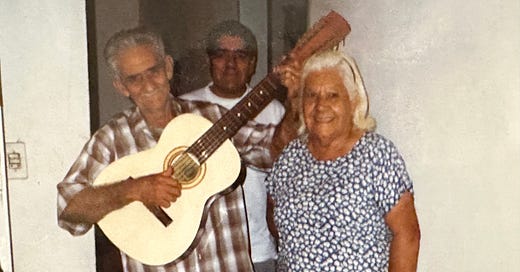I have my mother’s nose. Well, all the cousins have the Moreira family’s nose. It’s our special mark. As a teenager, I didn’t think it was that special to have a wide nose, and I thought I would look better with a different one. My brother has a birthmark like our dad’s. My youngest shares a similar one. My oldest child has a dimple like my nephew. My mom says her youngest granddaughter looks like her at that age. We want to belong to each other, like a plant passing a mark to the next generation. But it’s not just the physical part. I like to believe I’m imprinting daily genetic memories for long-term storage across space and time.
“When organisms pass their genes on to future generations, they include more than the code spelled out in DNA. Some also pass along chemical markers that instruct cells how to use that code.”
(https://www.cshl.edu/how-plants-pass-down-genetic-memories/)
But what about the things we create, learn, or adopt? Do we pass those down too? And then there are the instructions we give, the choices we make daily. I wonder if my kids will even remember them, much less embrace them. Will they carry on food rescue, air-drying laundry, popcorn for dinner, tapping the birch tree in Spring, Sunday teas, Thanksgiving walks, mushroom hunting, or eating the backyard Christmas tree?
I’ve always felt that if we didn’t have a tradition, I had the freedom to create one. That’s the code. The instructions I want them to remember are to find joy in connections and meaning in the present. My grandfather Amélio was a storyteller “contador de causos.” He didn’t pick up his 10 string guitar every time someone came to his house because he thought it would be part of his legacy. I’m convinced he did it because he knew laughter was the best medicine, to give and receive. He had the best and loudest belly laugh.
This week, at a doctor’s appointment, the nurses went over my medications, allergies, and family history. As she read my relative’s history back to me, I realized I was becoming them. “Any changes in your family history?” she asked. Was she asking if my past had changed? I couldn’t think of any, but maybe it has.




